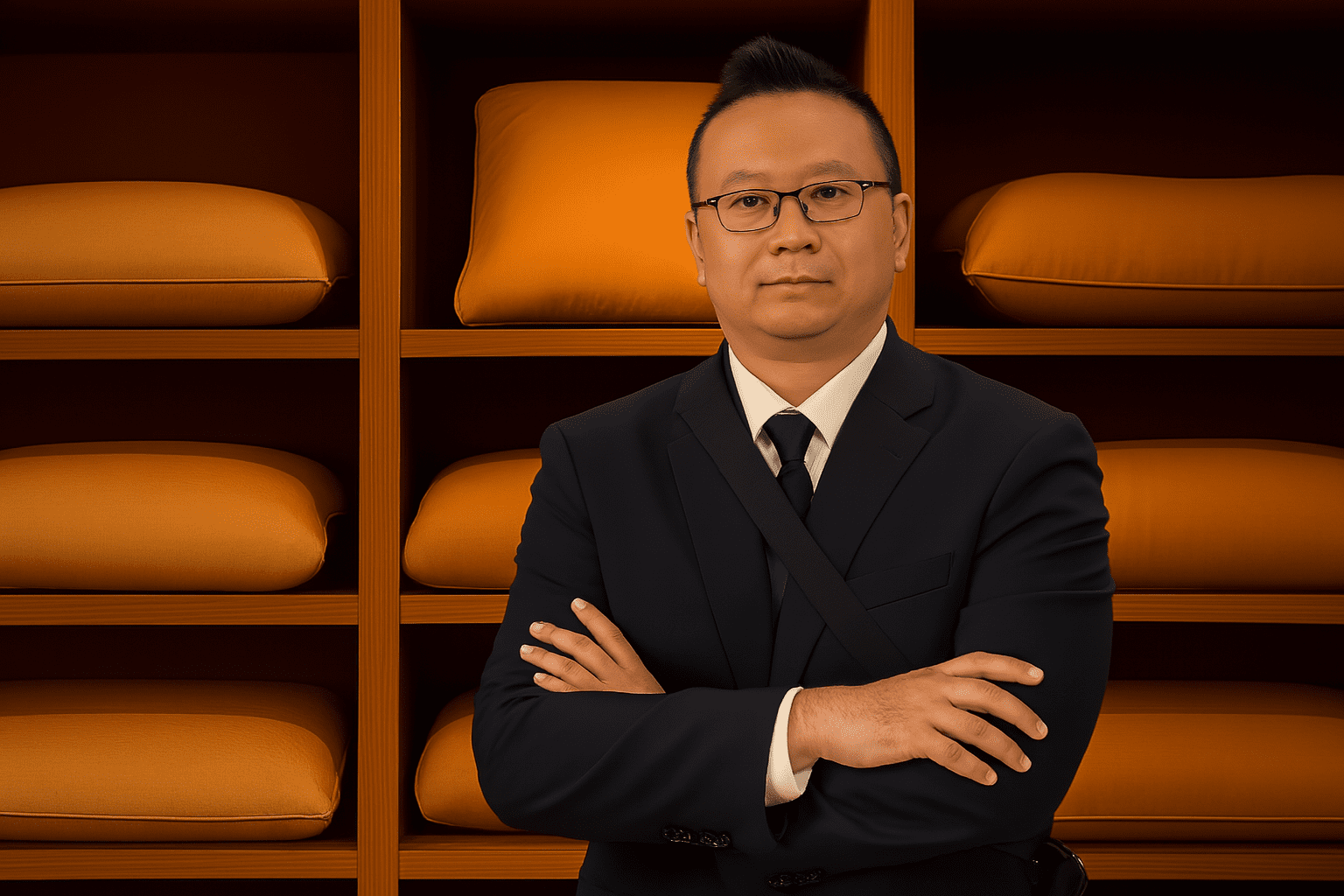In the product showroom of Jinshi Pillow Industry, General Manager Tao Yukun didn’t begin by introducing their latest smart sleep monitoring pillow. Instead, he picked up a pillow filled with cassia seeds – seemingly ordinary, yet their first breakout product that has sold over 1 million units to date.
“In this world obsessed with rapid iteration, we’ve spent 43 years doing just one thing,” Tao said, his palm steadily supporting the pillow as if weighing the passage of time it carried. “Two generations, one mission. This isn’t a slogan – it’s the anchor that grounds us through all temptations and turbulence.”
In an era where Chinese manufacturing faces numerous challenges, this pillow manufacturer based in Foshan – employing over 100 staff and operating from a 10,000-square-meter owned factory – presents a unique case study in resilience. Yet conversations with Tao Yukun reveal that the company’s story extends far beyond manufacturing; it’s a profound lesson in legacy, self-discovery, and how to transform “focus” into a disruptive strategic advantage.
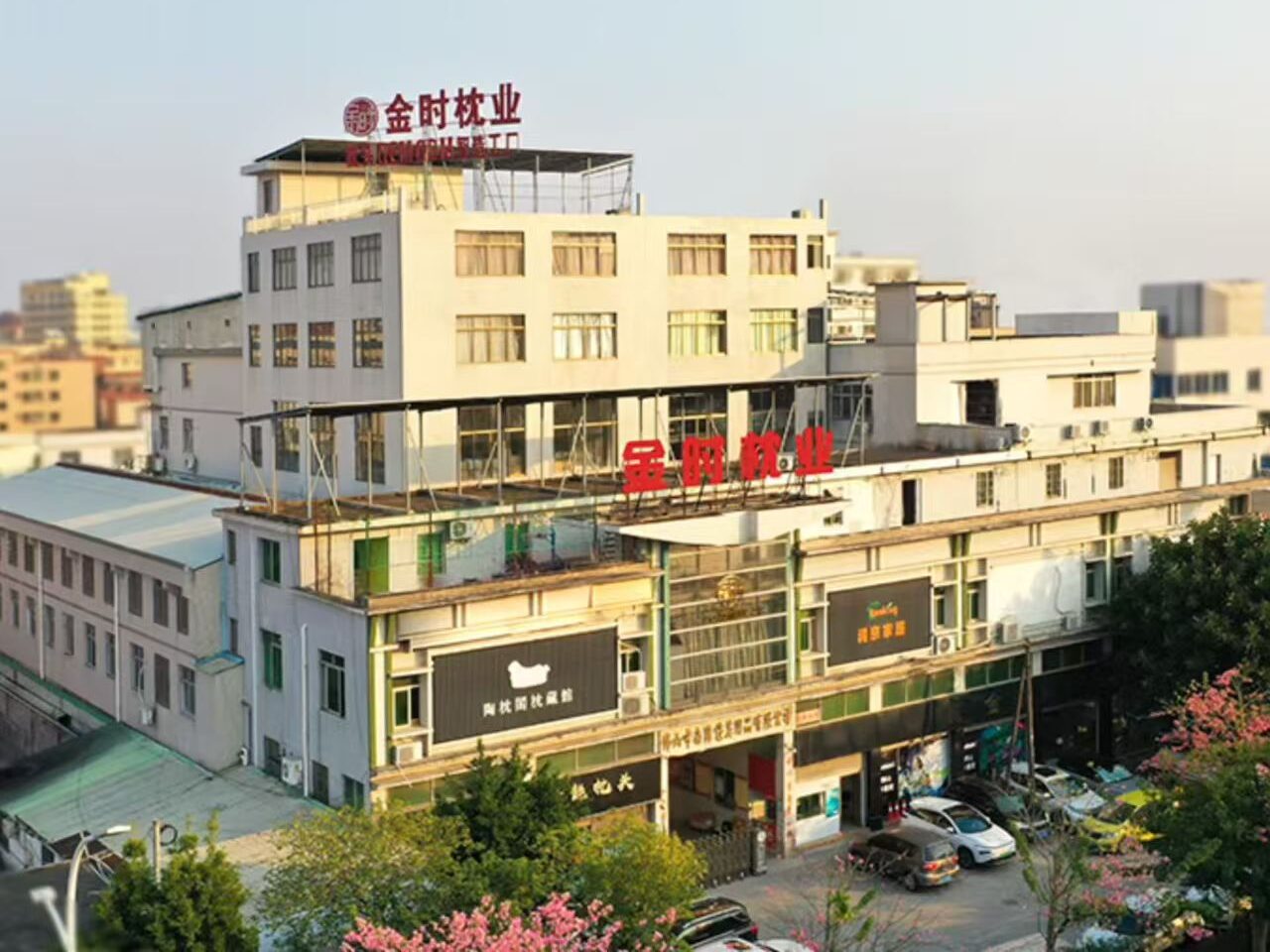
Lesson One: From 1 Million Cassia Seed Pillows to 200 New Product Developments
Tao Yukun’s management style traces back to an unexpected origin: his entrepreneurial experience before returning to the family business.
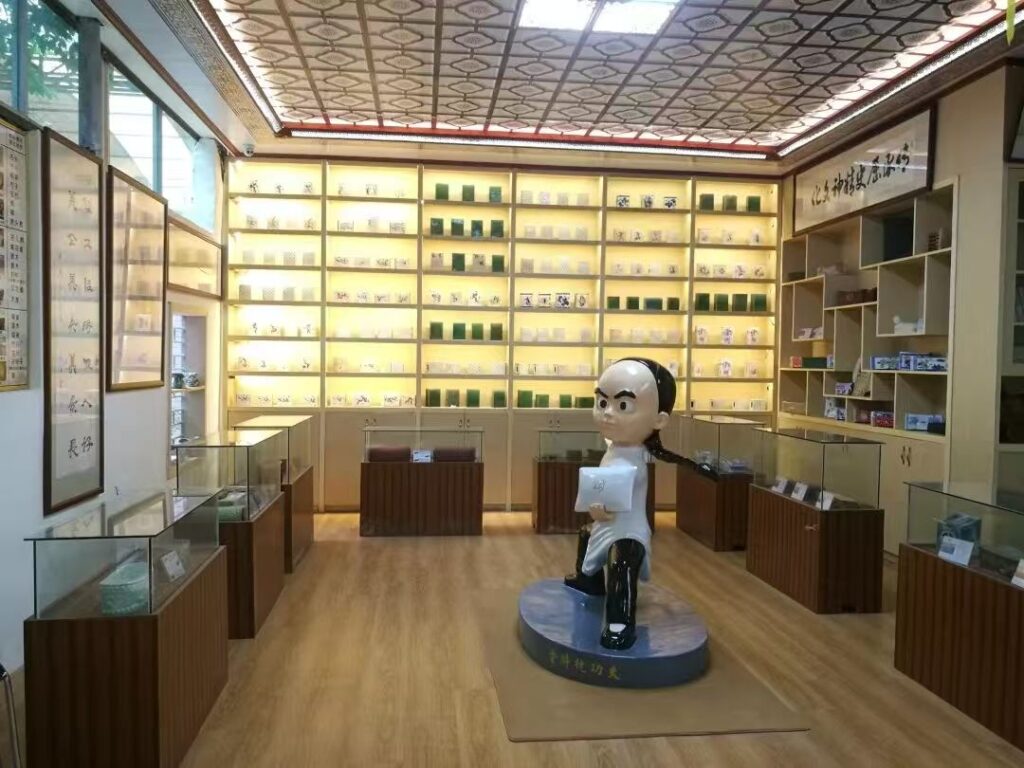
“Many people think I brought ‘innovation’ back from the outside world,” he reflects. “That’s only half true. What I really brought back was a reverence for listening to the market. When you start your first business without your father’s established customer network, all you can do is bend down and listen for the faintest signals from the market.”
He injected this “discipline of listening” into the established company. While the team was still in the success of their first-generation cassia seed pillow, obsessed with improving quilted patterns to compete in traditional markets, he guided them to “listen” to a more fundamental question: what is the deepest human need for a pillow?
“The answer isn’t ‘decorating the sofa,’ but ‘achieving healthy sleep,'” he says. “This simple answer became our north star for transformation, leading us from the red ocean of home textiles to new blue oceans in healthcare, maternal and infant care, and even pet supplies.”
This transformation didn’t happen overnight. From the foundational cassia seed cotton molded pillow, they expanded into graphene heating pillows, sleep-monitoring smart pillows, and anti-snoring pillows in healthcare technology. They moved into the maternal and infant market with pregnancy and nursing pillows, expanded into cultural gifts with agarwood and Thuja sutchuenensis pillows, and most recently entered the pet pillow domain. Jinshi’s product map precisely outlines their strategy of “centering on sleep, expanding into all related scenarios.”
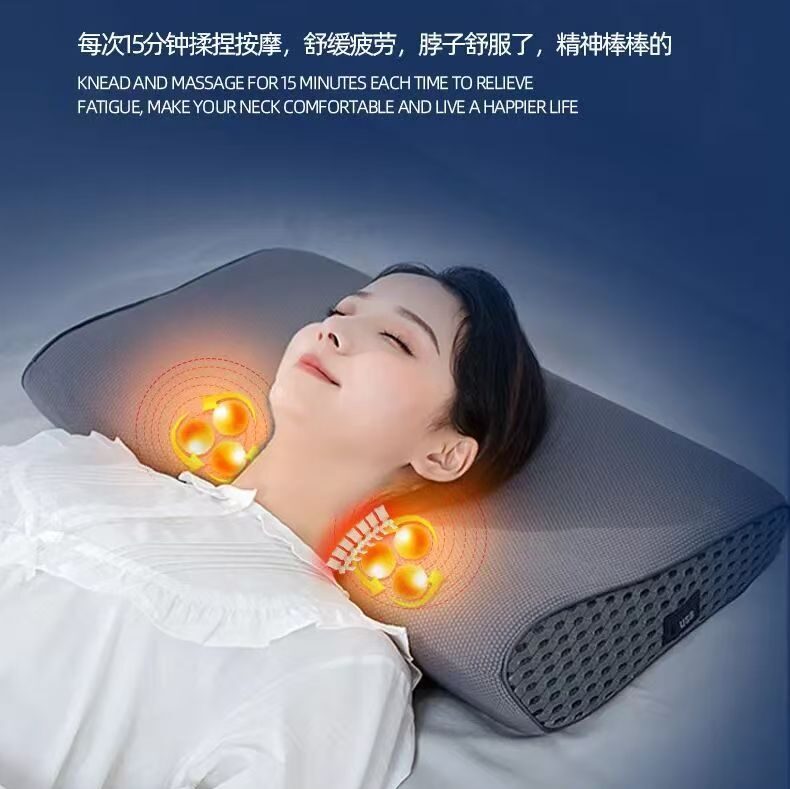
In the past year alone, nearly 200 new products entered development. Behind this astonishing innovation rhythm lies the driving force of a “deep listening” that has continued for 43 years.
The Culture of Candor and Agility Behind “Vigilance in Peace”
Tao repeatedly emphasizes that “vigilance in peace” is the key to the company’s 43-year survival. But what does this mean in practice?
“It means you have to create an environment where people can honestly discuss ‘uncomfortable truths,'” he explains. “Selling one million units of a hit product is our glory, but it could also become our biggest cognitive trap. I often ask my team in meetings: ‘If a company tomorrow could make a pillow twice as good as ours at half the cost and in half the time, what should we do today?'”
This profound sense of crisis drives the company’s “continuous re-entrepreneurship.” Whether establishing an e-commerce division, preparing a new 1,000-square-meter factory showroom, or successfully gaining over a hundred new clients through new media platforms like Douyin in the previous year – these all represent systematic “self-challenges.”
“As a leader, my job isn’t to have all the answers, but to keep asking the right questions and ensure the team isn’t afraid to face them,” he says.
Talent Development: Passing On the “Golden Key,” Not Just Techniques
At their 2019 annual gala, the company presented pure gold keys to employees with ten years of service. This ritual profoundly reveals the company’s cultural core.
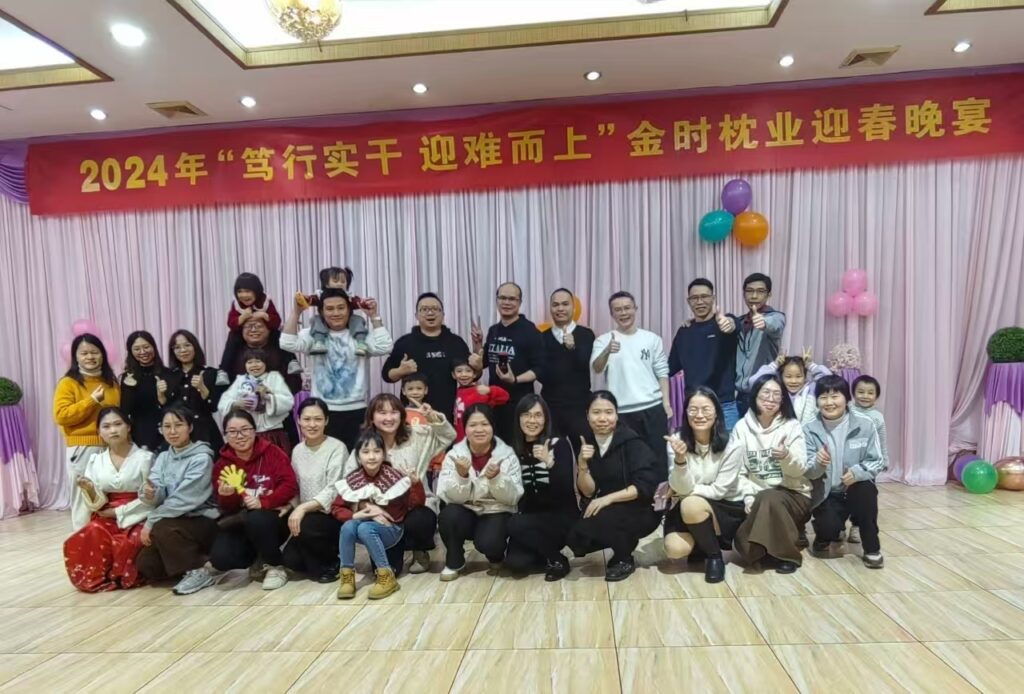
“What we’re passing on isn’t just pillow-making techniques, but an intangible ‘golden key’ – a commitment to professional dedication and keeping promises,” Tao says. “In a team of over 100 people, I want every employee to feel that their loyalty and growth are the company’s most treasured assets, worth repaying in real gold.”
He believes that in manufacturing, human stability forms the foundation of quality. And this stability comes not from strict management, but from letting employees clearly see that every effort “counts” – whether through seniority awards, profit sharing, or that symbolic golden key.
The Vision: The “Slow Philosophy” of Making the World Love Chinese Pillows
When discussing the future vision of “making the world love Chinese pillows,” Tao’s tone lacks aggressive ambition but carries a calm confidence born from their recent breakthroughs at professional exhibitions.
“This isn’t a sprint, but a marathon,” he says, quoting host Dong Yuhui, whom he admires: “Don’t fear slowness, fear stopping. No step in life is wasted.”
He believes that when the world comes to know Jinshi through pillows that precisely solve their sleep problems, what they’ll love isn’t just a product, but the credibility and warmth from 43 years of focusing on one thing. This strength has enabled them to launch personalized sleep solutions like their “One Person, One Pillow” custom service using the SPINEBO sleep pressure testing system at professional platforms like the China International Medical Equipment Fair (CMEF), transforming from traditional manufacturers into providers of personalized healthy sleep solutions.
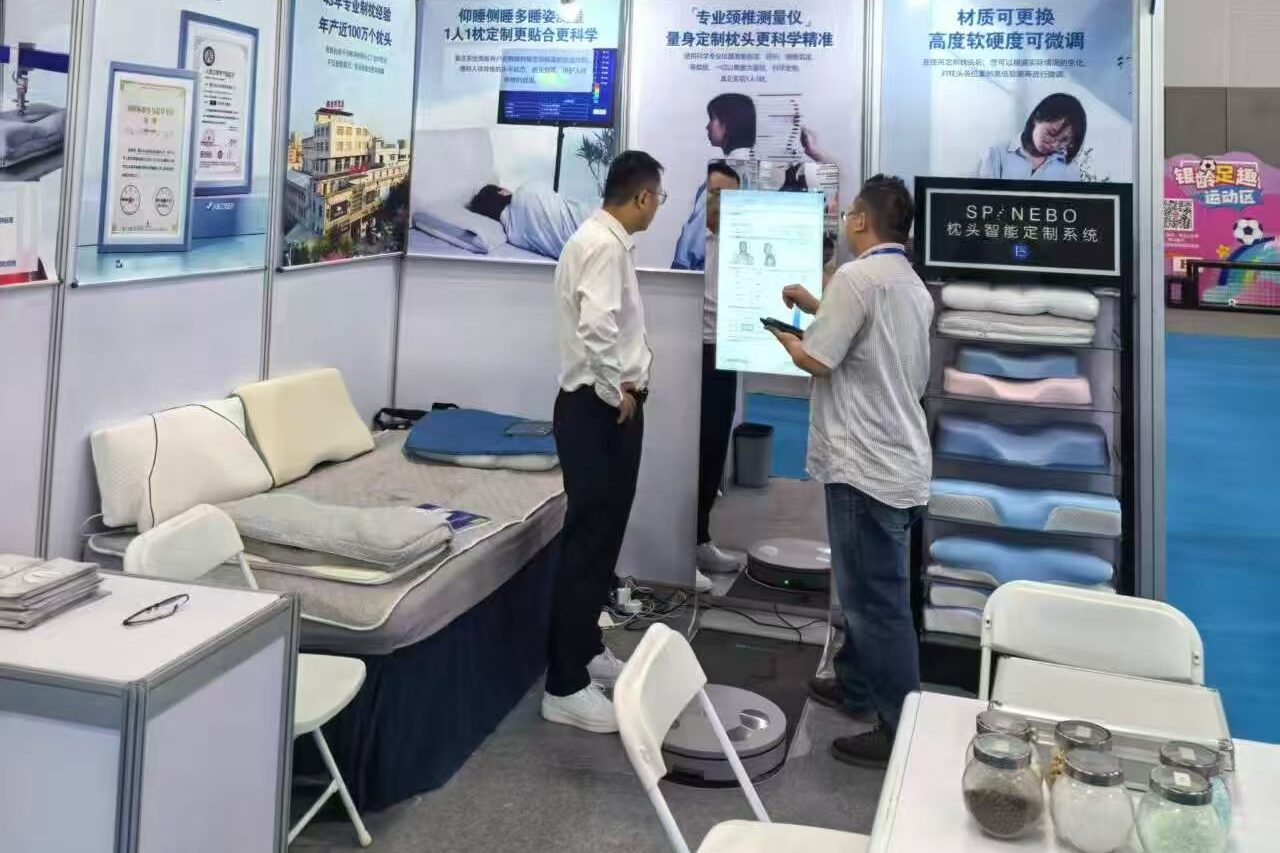
“Ultimately, we’re not selling textile products filled with materials – we’re selling the promise of a good night’s sleep,” Tao concludes, his gaze returning to that original cassia seed pillow. “And this promise requires generation after generation, through the discipline of focus, to carefully protect and fulfill. This is our answer.”

